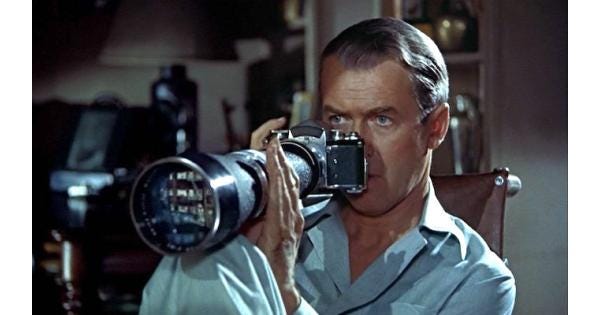Rear Browser Window
A short salvo on ISIS and the latest streaming hits.
One of my earliest memories begins on a tourist charter bus in Port Moresby, the capital of Papua New Guinea. My parents were obsessed with scuba diving for the first decade of my life. When I was four years old, they pulled me out of preschool and executed a sabbatical in what was once one of the most remote parts of the world. Before they settled in to the scuba camp in Oro Province and I became desperately attached to my nanny, Linda, we spent a few days in Port Moresby, where my mother was stalked and molested for her blondness and I ate the best fish I will ever taste. Port Moresby monopolizes my early consciousness. Like most people, I remember very little about the first five years of my life, yet my memories of Port Moresby are as vivid as my first kiss.
My parents and I had spent the day at a market in New Guinea’s capital. Everyone touched my hair and it didn’t feel strange or wrong. The children lived naked and the women lived topless. I wore white ankle socks on my hands because they made me feel like an Edwardian princess. And I looked. As the charter bus left Port Moresby’s market, I fell in love for the very first time. I was head over heels with watching. I had learned that it was possible to get high off of bearing witness to the way other people lived their lives.
There is so much to look at.
When I was nine, one of my classmates showed me a video of a journalist being decapitated by an ISIS militant. I do not consider this memory to be a traumatic one. It was simply another chance to sample the way that people went about living and dying. To see how the world really was. To a child of the internet, violence was not implicitly upsetting. It simply was. I would never experience shock again, but I would, from there on out, become aroused and fascinated by the extreme, the Maccabee, the uncomfortable, and the unknown.
This resolute desensitization to what should make any ensouled person sick has marked my generation. Nathan Fielder, the creator of Nathan For You and The Rehearsal, understands this. He is one of the only mainstream artists that grasps that there is no longer such a thing as “too far.”
His critics misunderstand him as cruel and irreverent, and most of those who praise him only allow themselves to bask in the absurdity of his work rather than acknowledging the pleasure they receive from watching a normal person grapple with a constructed reality. People on Twitter call his fans sadistic. Yet what makes most of us obsessed with Fielder’s work is his ability to display human strangeness and vulnerability on film. You would have to be a fool to participate in one of Fielder’s skits, but something within you understands why this stranger is willing to capitulate to his insane demands. Rationality is dead and the cameras are rolling. You have viewers. If an HBO producer said jump, you and I both know you would say “how high?”
Nothing is sacred and everything is content. And goddamnit, we’re going to watch.
I recently nursed a hangover by binging the latest season Love On The Spectrum. If you’re not familiar, it’s a fucked up show where a crew of Netflix producers sets up a slew of dates for people on the autism spectrum. If the show doesn’t make you feel upset in a way you can’t articulate, I suggest you spend some time in church or set up an emergency session with your psychiatrist. Yet despite the way this show makes me feel bad, I cannot look away. It evokes the same feeling I felt behind the plexiglass Megabus window in Port Moresby, exposed for the first time in an exceptionally privileged life to extreme poverty, or when I watched a machete take a man’s head off his shoulders before quiet reading time. It is a new iteration of simulacrum that fulfils my compulsion to look.
This is not another tirade about my issues with the internet or contemporary media. Up until about two hundred years ago, public executions were the highlight of the week for the Western man. They never hung the rapists; property theft was enough for the gallows, thus confirming my suspicion that we require baseless violent stimulus and exposure to antisocial or unconventional behaviors to keep us going, to satisfy. The temptation to return to our Hobbesian nature is exceptionally powerful, and can only be mitigated by witnessing how absurd that impetuous truly is.
We are sick with human interest. Shows like My 600-Pound Life do not exist for solely fetishists, let alone for the allegedly “compassionate.” They exist because we must embrace our voyeurism under the guise of entertainment and interest in order to satisfy desires we don’t understand in order to play by the rules of contemporary reality.
I have no argument tonight. But I want to know what you do when you are alone. I want to know how you behave when you know the cameras are rolling, but you don’t know that I’m watching.


